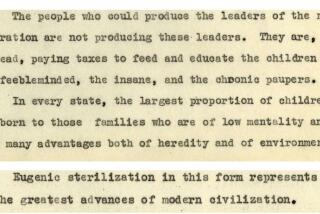U.S. Ordered to Tell Disabled of Possible Aid
SAN FRANCISCO — The 9th U.S. Circuit Court of Appeals has ordered the government to notify 30,000 to 70,000 disabled people whose Social Security disability benefits were cut off that the payments could be restored.
The government had refused to do so, and Health and Human Services Secretary Margaret Heckler failed Friday in a last-ditch effort to avoid a deadline for mailing notices.
The notices include explanations of potential benefits written not only by the government but also by the Legal Aid Foundation lawyers who have been trying to get the payments restored. The notices tell former recipients that they can ask Social Security officials to review their cases and that they can ask for benefits to resume pending the review.
Cuts by Administration
Involved in the case are people in nine Western states and three territories who once received disability payments for a variety of medical problems but who lost them due to cuts by the Reagan Administration.
The suit was filed in 1981 after the appeals court ordered the government to restore benefits to two people whose payments were cut without any indication that their health had improved.
The government restored benefits to the two people but refused to follow the court order in any of the thousands of similar cases. The Reagan Administration was attempting to save $200 million by cutting off 20% of the 7 million Americans receiving disability benefits.
Last April, the government stopped the terminations, partly because the courts were clogged with thousands of lawsuits. However, since 1981, about 490,000 people throughout the country are believed to have lost disability benefits.
‘Significant Victory’
Bruce Iwasaki, a Los Angeles Legal Aid Foundation attorney, said that Friday’s ruling was “a very significant victory.” He said some people removed from disability are homeless or face foreclosures on their homes.
Some people died of the very illness Social Security said they did not have, Iwasaki said, and many did not know that they had any right to appeal.
Iwasaki said it has always been up to the disabled to prove that they are entitled to benefits, but once they received money, it was up to the government to show that a recipient’s health had improved before the benefits could be cut.
More to Read
Sign up for Essential California
The most important California stories and recommendations in your inbox every morning.
You may occasionally receive promotional content from the Los Angeles Times.










